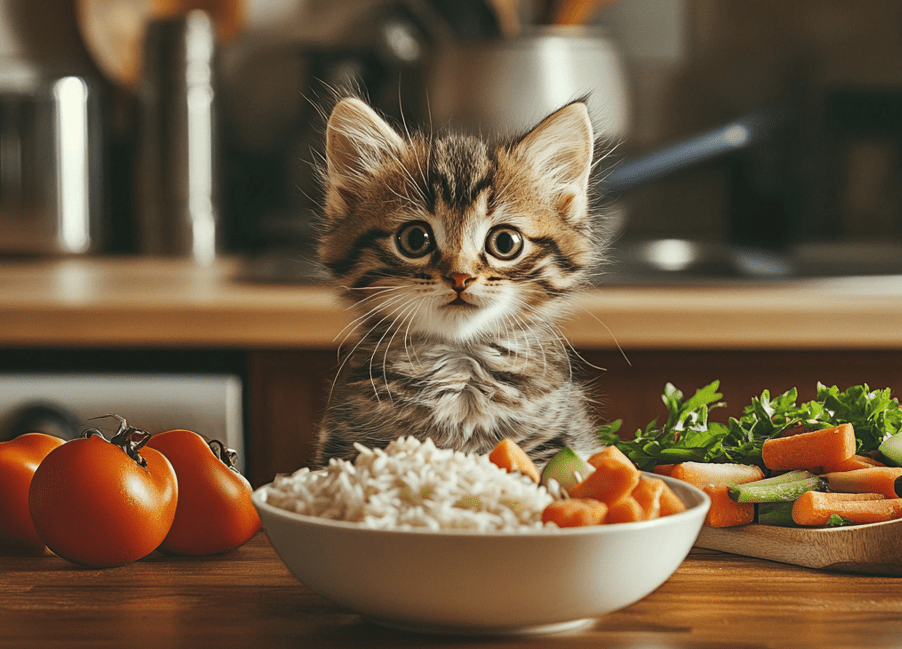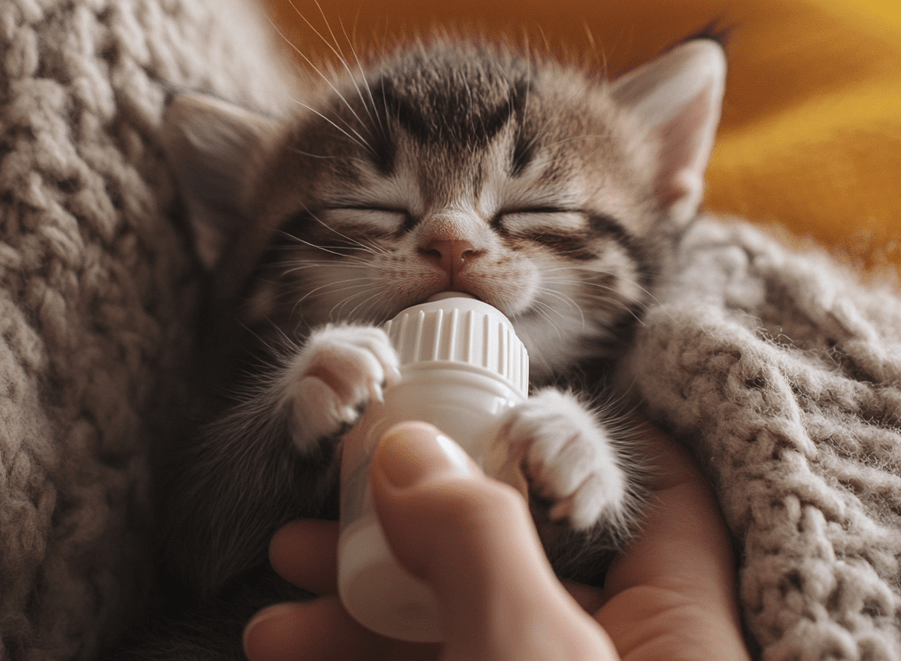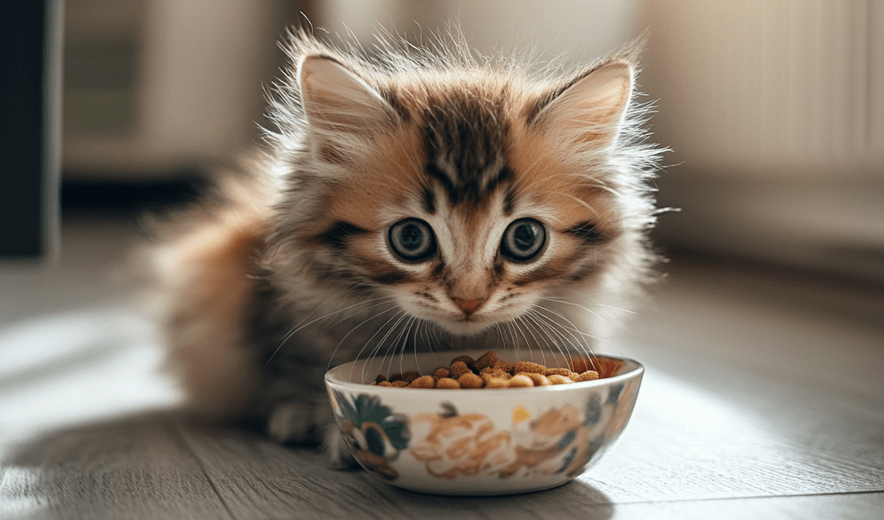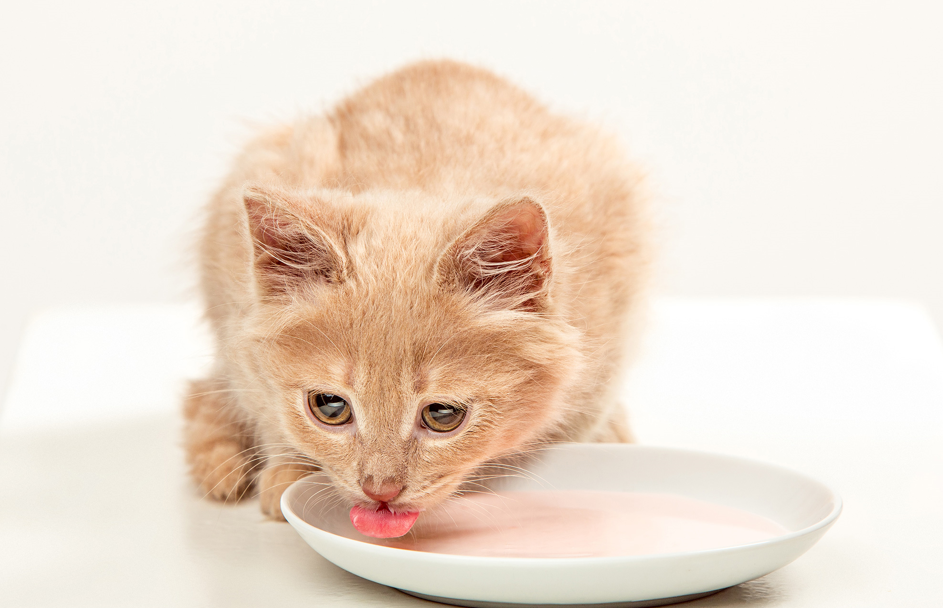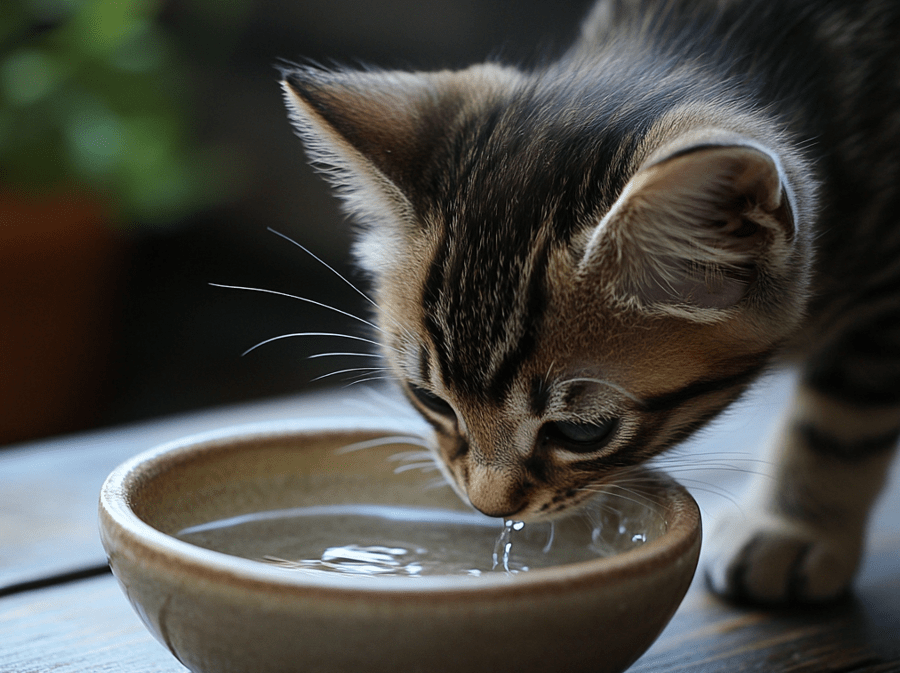
Keeping your kitten hydrated is an essential part of being a good cat parent. A well-hydrated kitten is a healthier, happier kitten. Water supports a significant amount of body functions including but not limited to maintenance of normal temperature, protection and loss mechanisms for essential organs as well as soft tissue repair. We are going over how much water your kitten needs, why it is essential to stay hydrated, the signs of dehydration and tips for keeping drinking as they grow.
Key Takeaways
Kittens have unique water requirements as they transition from their mother’s milk to solid food.
Identifying symptoms of dehydration such as lethargy, dry mouth, sunken eyes and decreased appetite can help if you need to act fast.
A method that has been successful in maintaining water intake is to always ensure fresh, clean water is available for your kitten; and one of the areas this will work into our plan is through wet food.
Follow different strategies for feeding picky kittens like different bowls, different test of waters etc.
Why proper hydration is important for kittens
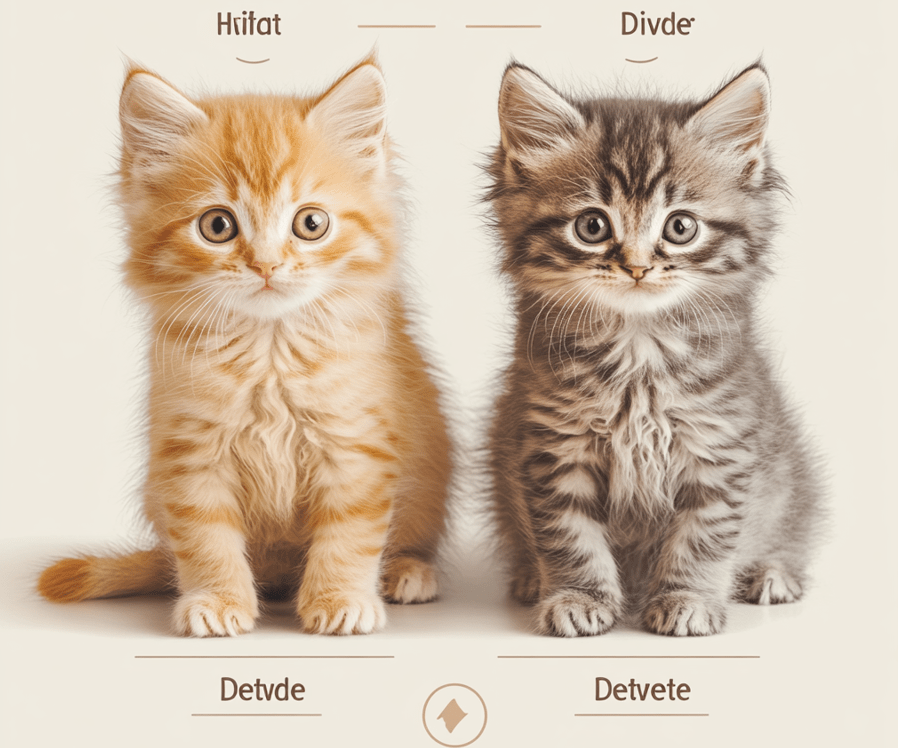
Proper amount of water is necessary for proper growth of kittens. Without enough hydration, kittens can face many health issues that slow their growth.
Avoid dehydration and illness
Dehydration is a serious, dangerous health condition. Make sure to provide enough water for your kittens. Dehydration can cause a kitten to become lethargic, lose its appetite and in the extreme even lead it into organ failure. Provide your kitten proper amount of fresh and clean water to drink. It will prevent various types of health issues.
How dehydration leads to potential health problems in kittens
Here are some reasons:
- Supports physical growth and development
- Regulates body temperature
- Aids in nutrient absorption
- Promotes organ function
Those complications are further health problems such as dehydration,
-Lethargy
-Loss of appetite
-Organ failure
-Stunted growth
Realizing how vital kitten hydration is helps pet owners maintain the well-being of their kittens. They can ensure that those kitties continue growing up big and strong.
These kittens between the age of 8 to 12 need to drink 4-6 ounces of water daily.
Adult Cats: 20-40 ounces of water per day.
Knowing how much water a kitten needs can have you feel at ease, sometimes finding relevant information on what is appropriate water intake for kittens seems to be elusive. The amount of water that a kitten requires is determined by its age and stage in life. They should be drinking this at different times throughout the day:
Neonatal Kittens (0-4 weeks)
The mother’s milk provides sufficient water to fulfill the needs of a newborn kitten.
Weaning Kittens (4-8 weeks)
Kittens require more water after they begin to wean. When kittens are weaned, they should always have clean and fresh water available in addition to milk and solid food.
Growing Kittens (8-12 weeks)
If your kitten is 8–12 weeks old, however, you may give him extra water since he gets bigger and eat more. Provide them with 4 to 6 ounces of water per day. This may be adjusted according to their activity and weather.
Adult 12 weeks and up
Water needs in adult cats should also undergo changes, as they are susceptible to health challenges. They need 20-40 ounces of water per day. It mainly depends on how big they are, active and healthy.
NOTE: This is only a general guideline. Even if you have something different in your mind, the kitten water needs according to age will vary depending on the cat itself or environmental factors or health problems. Monitor how much your kitty is drinking and adjust it to keep them hydrated.
Signs of dehydration in kittens
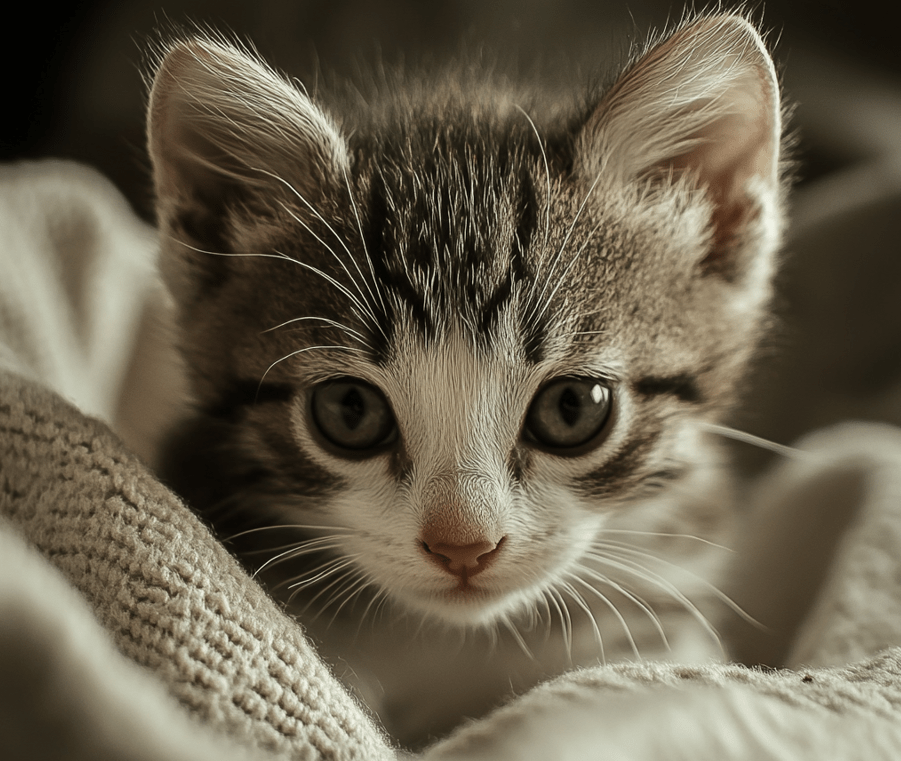
It’s key to know the signs of dehydration in kittens for their health. As a pet owner, watch for common symptoms. This knowledge will help you understand your kitten’s illness.
Common Symptoms to watch for
Dehydration shows in kittens in many ways. Knowing the signs is vital. Here are some symptoms:
Lethargy and Decreased Energy Levels: A dehydrated kitten may seem tired, less active, and less aware of its surroundings.
Dry Mucous Membranes: Look inside your kitten’s mouth, at their gums. If dry, it could be a sign of sickness. This might mean they are thirsty.
Skin Tenting: Pinch your kitten skin and see how quickly it goes back. If it lasts for longer than a few seconds, they might be parched.
Sunken Eyes: Dehydrated kittens may have eyes that do not sit flush with the rest of their face.
Decreased appetite: A dehydrated kitten does not drink water and eats less than usual
This is why you should monitor how your kitten behaves and appears. This is a critical step in making sure the get out of being dehydrated and go on with their lives well.
“Dehydration plays a crucial role in reducing kitten health and growth. Being alert and knowing the signs can help you give the right care and support your kitten needs.”
Providing Fresh, Clean Water at All Times
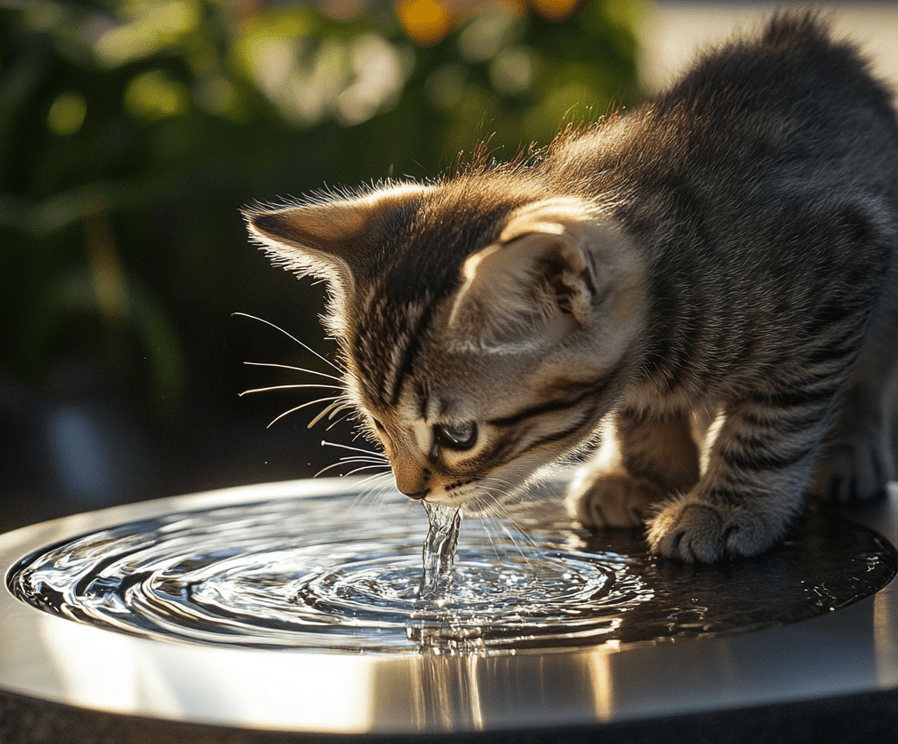
It’s very important to make sure your kittens have clean, fresh water. Giving them water for kittens is key for their health and growth. It also stops dehydration and other water problems. Choosing the right kitten water bowls and keeping them clean is crucial.
The place that you keep the water for kittens is very important. Leave water bowls around the house. This ensures that they drink water conveniently wherever they go and whatever activity their up to.
Plastic bowls should be avoided since they become covered with bacteria and chewed by young, playful kittens.
Consider using stainless steel or ceramic bowls, which are very easy to clean and maintain comfortably.
Regularly refresh the water. Ensure that it is clean and cool.
Kittens love to explore and play, so keep their water bowls safe from spills. A steady, clean water source is key for their health as they grow.
Kitten Age Water Intake Recommendation
0-4 weeks Kittens receive all their proper hydration from mother’s milk.
4-8 weeks slowly introduce water as they begin weaning.
8-12 weeks Kittens should have constant access to fresh water.
Start giving them clean, fresh water as they try solid foods. Watch how much water they drink and change it if needed to stop dehydration.
Kittens grow, and their water needs change as they wean. This big step from only drinking their mom’s milk to eating solid food and drinking water is important.
Transitioning from Mother’s Milk
When kittens begin to wean, they drink less milk and eat more solid food. This will change their kitten water necessity percentage and more about how much kitten water needs at time of weaning kitten’s drinking water when to introduce. That would be very easy to break and will require good amount of water for their growth.
How to manage kitten’s water demands during weaning
Then, as you offer them solid food begin to give them clean fresh water.
Monitor their intake of water and adjust as necessary to prevent dehydration.
Give them plenty of water to drink and keep them in different places for them to find. Keep the water container clean. Keep solid food and water side by side so that they can drink water immediately after eating.
This supports their health and growth.
The importance of wet food in kitten hydration
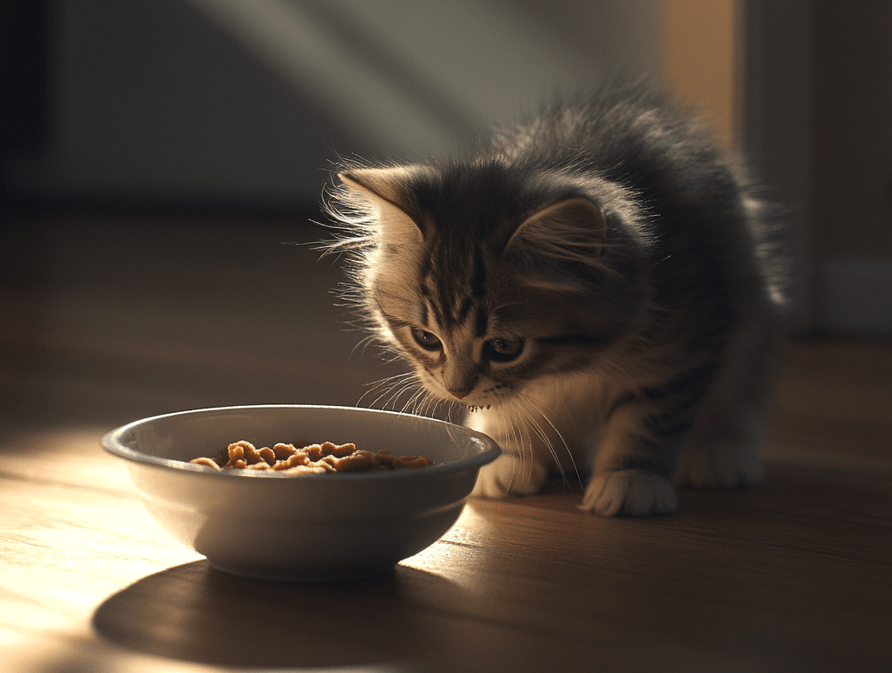
Hydration is essential to sustain a kitten’s life and growth. Provide fresh, clean water and also wet food to help with hydration. It is a great way to ensure they don’t get dehydrated.
This makes it a great way to help kittens drink more water. Kittens may not consume sufficient water independently, making wet food a helpful way to ensure they stay hydrated.
Kittens need more water because they grow fast. They need fluids for their organs, skin, coat, and muscles to work right. Wet food can give them the water they need, keeping them from getting dehydrated.
Wet Food for Kitten Hydration Dry Food for Kitten Hydration
“Wet food plays a prominent role in keeping kittens hydrated, especially during the critical growth phase.”
It usually has 70-80% moisture in it, and that contains around 10-12 % of the natural high quality water variable nutrients.
A kitten’s diet should consist of wet food. From this the kitten get enough fluid and they stay hydrated.
Creative Tips and Tricks to hydrate a picky kitten
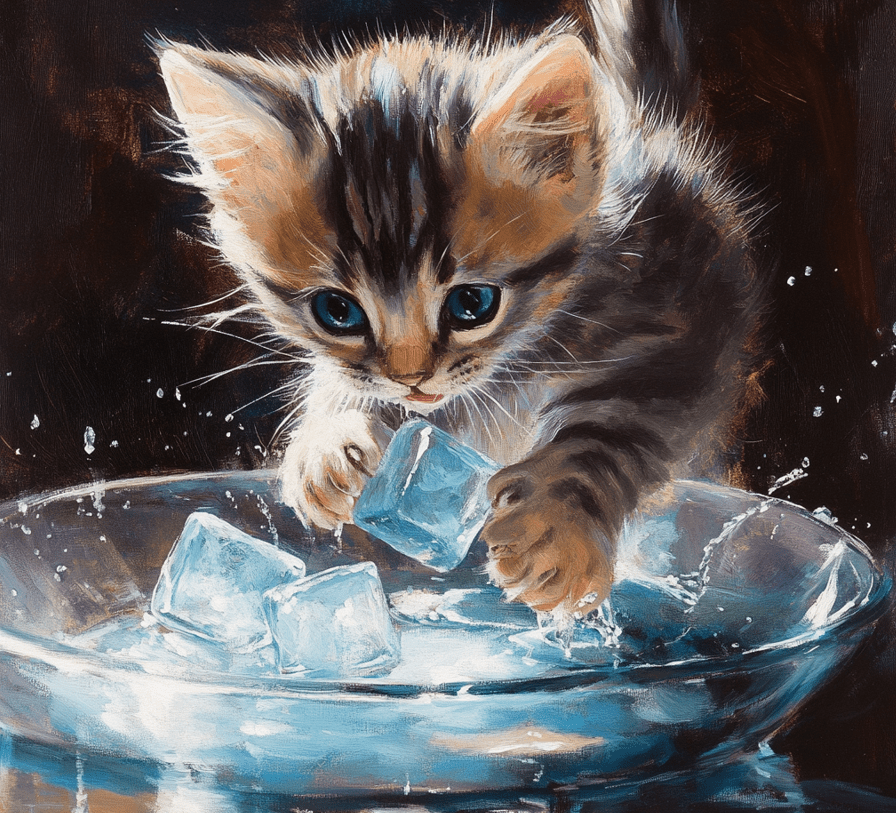
Experiment with different types of water bowls or fountains to see which your kitten prefers. However, kittens will usually be a little more interested in the sound of running water and movement that comes from a modern pet water fountain. To attract your kittens more, try adding a little low-sodium chicken or tuna broth to the water. But be sure to use pet-safe broth and monitor how much your kitten also drinks, since consuming too much can lead to health issues.
You will have to place in different spots of the house multiple water bowls for your kitten and let her choose which one she wants.
Use ice cubes in the water for a cold, crunchy texture that some kittens may prefer.
You can teach your kitten to drink from a small cup or spoon, which will be fun and help bonding/ get some water into them.
As well, all kittens are unique and you may need to try a few versions of litter before finding one that works for your pet. Just be patient, maintain fresh and clean water sources along with different possible ways to keep your kitten hydrated.
Kitten Water Needs and Diet
Establishing the perfect balance of a kitten’s water intake together with what they eat is one of the most critical factors as it relates to their health and vitality.
Kittens 8 to 12 weeks old should drink a total of about 1 cup of water every day and eat at least 20-25% wet food in their diet.
4-6 weeks 1/2 cup per day 75-100% wet food
6-8 weeks 3/4 cup per day, 50-75% wet food
8-12 weeks 1 cup per day 25-50% wet food
Watching a kitten’s water needs and diet closely helps them stay hydrated and healthy. This ensures their healthy and happy life.
If dirty water bowls are left uncleaned, disease and decreased consumption of the water may result. If a dish is too deep and unsteady, it can make drinking more difficult for the young cat. Hydration is vital to the health and growth of kittens. However, there are some mistakes pet owners make that could cause dog dehydration. These are the types of risks that you should be aware of when it comes to your kitten. One big mistake was not properly providing fresh clean water. Their stomachs are very small and they can run out of energy quite quickly so they need to drink water often. Failing to refill their water bowls will result in dehydration quickly.
A second error is to believe that a kitten gives only bought wet food enough “water.” Wet food is much easier to digest than dry as it has more moisture but this on its own isnt great.
Kittens also require their own water dishes to consume sufficiently. Neglecting to clean water bowls regularly, causing bacterial accumulation Offering water in dishes that are excessively deep or unsteady for a newborn kitten Failing to move kittens gradually from mother’s milk to solid food and water Being aware of these kitten hydration mistakes helps prevent kitten dehydration. In this way, you can give your kitten a healthy life.
Conclusion
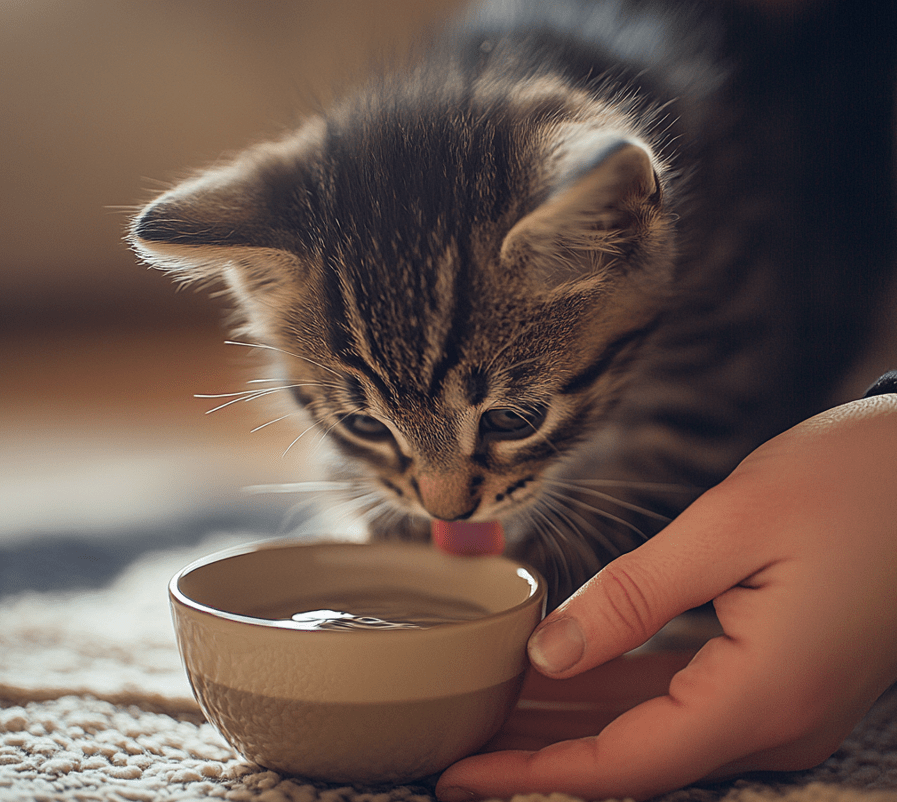
We have now concluded our guide on kitten water needs and as you can see, it all comes down to hydration. Development of hydrated kittens is proper.
In this article, we’ve explored how a kitten’s age and weight impacts their water requirements. Understanding the needs of our kittens will help us to know how much water they require. This helps them to remain fit and avoids dehydration issues.
Kittens need a constant supply of fresh, clean water for their health.
We can also encourage them to drink by using creative ways. Prioritizing their hydration contributes to their longevity and happiness as valued members of our family. Let’s make sure we meet their water needs and support their health and happiness. Ensuring their water needs are met and supporting their health by providing ample opportunities to drink throughout the day are essential for their well-being.

